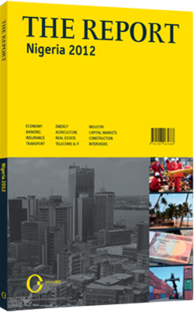OBG talks to Ngozi Okonjo-Iweala, Coordinating Minister for the Economy and Minister of Finance

Interview: Ngozi Okonjo-Iweala
How can Nigeria limit the broader economic fallout from the drop in remittances in 2011?
NGOZI OKONJO-IWEALA: Remittances largely go to family members in Nigeria for domestic use, such as paying school fees and building houses or businesses. Nigeria can provide incentives to channel more remittances into productive uses rather pure consumption, such as by offering matching funds for entrepreneurial start-ups. The government can also create awareness for expatriate Nigerians about safe investments in the country that will reduce dissipation of remittances.
In what ways can the coordination of budget revenues and expenditures be improved?
OKONJO-IWEALA: On the revenue side, the states and their governors set the parameters for budget revenues via consultations with the National Economic Council. Nigeria practises fiscal federalism, so on the expenditure side, the central government has limited control. However, in meetings between the National Planning Commission and the State Economic Affairs Commissioners, states’ expenditures on certain programmes can be aligned with the federal government’s vision. Many of the programmes that are developed at the federal level have versions at the state level, such as the Millennium Development Goal programmes and the Subsidy Reinvestment and Empowerment (SURE) programme. States are encouraged to run similar initiatives to maintain alignment.
What is being done to cushion the impact of external shocks on Nigeria’s economy?
OKONJO-IWEALA: In today’s globalised world, Nigeria is more than ever under pressure to diversify its economy. A range of crises, be they linked to finance, food or natural disasters, can adversely affect us at any point. Diversification requires many factors to come together, but I’d like to highlight the importance of trust. Nigerians don’t trust the government because time and time again promises have been broken. My job is to help restore that trust and show our people that the president and the entire economic management team recognise our past issues and are committed to delivering this time around. This can be seen by the strong collaboration between my ministry and other vital components in the design of Nigeria’s economic policy. This alignment is restructuring our macroeconomic health to a level where public debt is increasingly sustainable, the capital budget is on the rise, revenue is generated through a fight against corruption and a revision of the national tax policy, and public money is spent in areas that create jobs. As the Chinese proverb goes, a journey of 1000 miles begins with one step.
How is government borrowing being curbed?
OKONJO-IWEALA: Over the past decades, Nigeria has amassed unsustainable levels of recurrent expenditures, especially by rising wage bills, and is now faced with significant fiscal exposure. We have therefore committed to rolling this back, and are doing so by substantially reducing new borrowing and by retiring outstanding debt through a sinking fund that will soon be established. Domestic debt has gone down from $1bn in 2010 to $744m in 2012, and we aim to reach $500m by 2015. We have to go at it gradually to prevent a shock to the system, but we are keeping pace.
We seek to have a nation and a people who see taxation as a partnership with government. We want to create a participatory system of taxation, where the taxpayers and other stakeholders see that they have an equal stake in the tax system. We want to create an economy that is self-sufficient and does not depend wholly on resource wealth to bring development to the people. Above all, we want to institutionalise a tax culture amongst Nigerians such that we see ourselves as custodians of the tax system and our commonwealth. We are making good progress here.
You have reached the limit of premium articles you can view for free.
Choose from the options below to purchase print or digital editions of our Reports. You can also purchase a website subscription giving you unlimited access to all of our Reports online for 12 months.
If you have already purchased this Report or have a website subscription, please login to continue.

